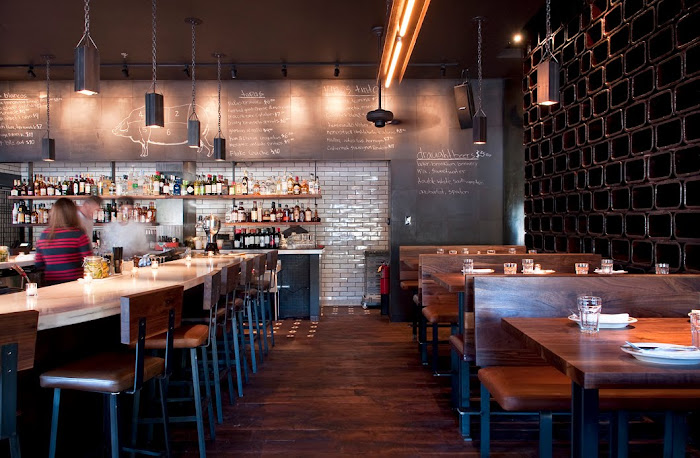

What they discovered was someone with an atypical management style focused on people, not dollars. He says L Catterton wanted a “culture keeper” at the controls-not your traditional CEO with a boilerplate resume-to nurture the brand’s personality.īarcelona’s board asked him to take an exhaustive, multi-tiered personality profile to determine his style of leadership. Halberg joined Barcelona in 2008 as its culinary director. This marked the first time Barcelona functioned independently, with an executive leadership suite solely concerned with how the chain could best thrive and separate from the pack.Īnd L Catterton, which is also based in Connecticut, wanted Halberg to direct it. It positioned Barcelona as a separate entity from bartaco and the rest of Del Frisco’s assets, some of which were eventually sold to Landry’s. L Catterton brought stability and creativity agility, however. Halberg calls the period “eminently disruptive.” Over that time, Barcelona’s headquarters shifted from Connecticut to Dallas, then back to Connecticut, with personnel and overall company culture adjusting as well. In summer 2019, it was dealt again, this time to private-equity giant L Catterton, which holds investments in Noodles & Company and Uncle Julio’s, as part of a $650 million scoop. Barcelona was sold, along with its younger-sibling concept bartaco, in 2018 to Del Frisco’s- a $325 million cash deal that brought the brands into a portfolio of Del Frisco’s Double Eagle Steakhouse, Grille, and Sullivan’s Steakhouse. A lot of the steadfast stances you saw taking shape in January stemmed from Halberg’s early days, and trying to refocus a brand that was tossed through the M&A wringer in recent years. Halberg helmed the CEO post for only a few months pre-crisis. The carefully curated beverages and wine selection is part of that. “We’ve always said food is one of the many multi-faceted tools that we use to give people a special experience,” Halberg says. It was as much a conversation of what Barcelona wasn’t adopting as much as what it was.Īnd then COVID-19 showed up on the country’s doorstep, something Halberg calls a “global tragedy.” Less like the Great Recession some compare it to from an economic angle, and more like a hurricane or earthquake.įor Barcelona, the great personal hardship hit right at its differentiated core. “We’re able to go aggressively far into the core elements that create the magic in our restaurants because of relationships and systems we’ve built over time,” he told FSR at the conference. Why was Barcelona taking this outlier approach? Drew McConnell, senior brand manager, summed it up. To-go was available for customers who requested it, but was hardly a center focus. The 18-unit chain also didn’t promote off-premises and wasn’t listed on third-party sites. Yet it turned off nearly every additional feature the reservation service offered. It switched from pencil-and-paper to online reservations last year. You could call Barcelona an old soul in the industry, and not be wrong. “I don’t mean this poorly on anyone else, but there are a lot of folks in aspects of foodservice who have been hungering to figure out how do we do this without people,” he says. Brand after brand stepped forward to tout technology’s potential, the merits of innovation and automation, delivery and accessibility.īut they were really dressing up a different notion, CEO Adam Halberg says.

Back at January’s ICR Conference in Orlando, Florida, Barcelona Wine Bar felt like the rebel in the room.


 0 kommentar(er)
0 kommentar(er)
